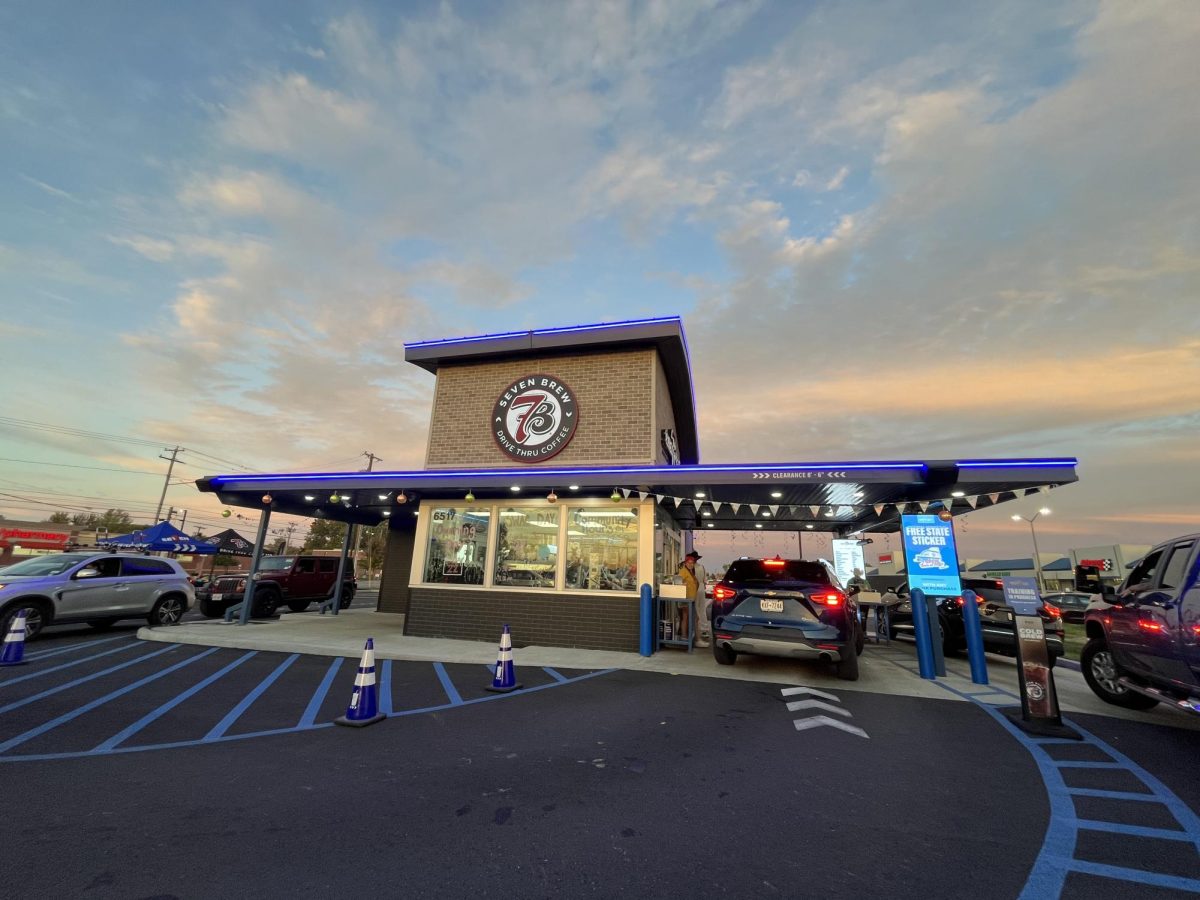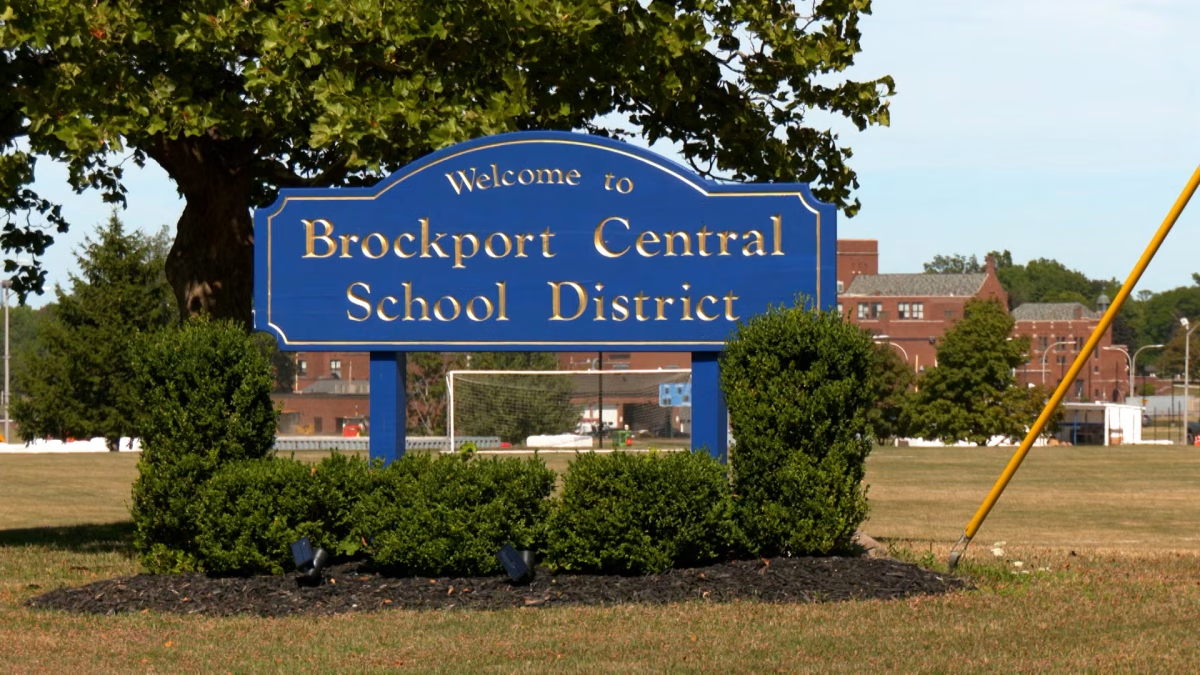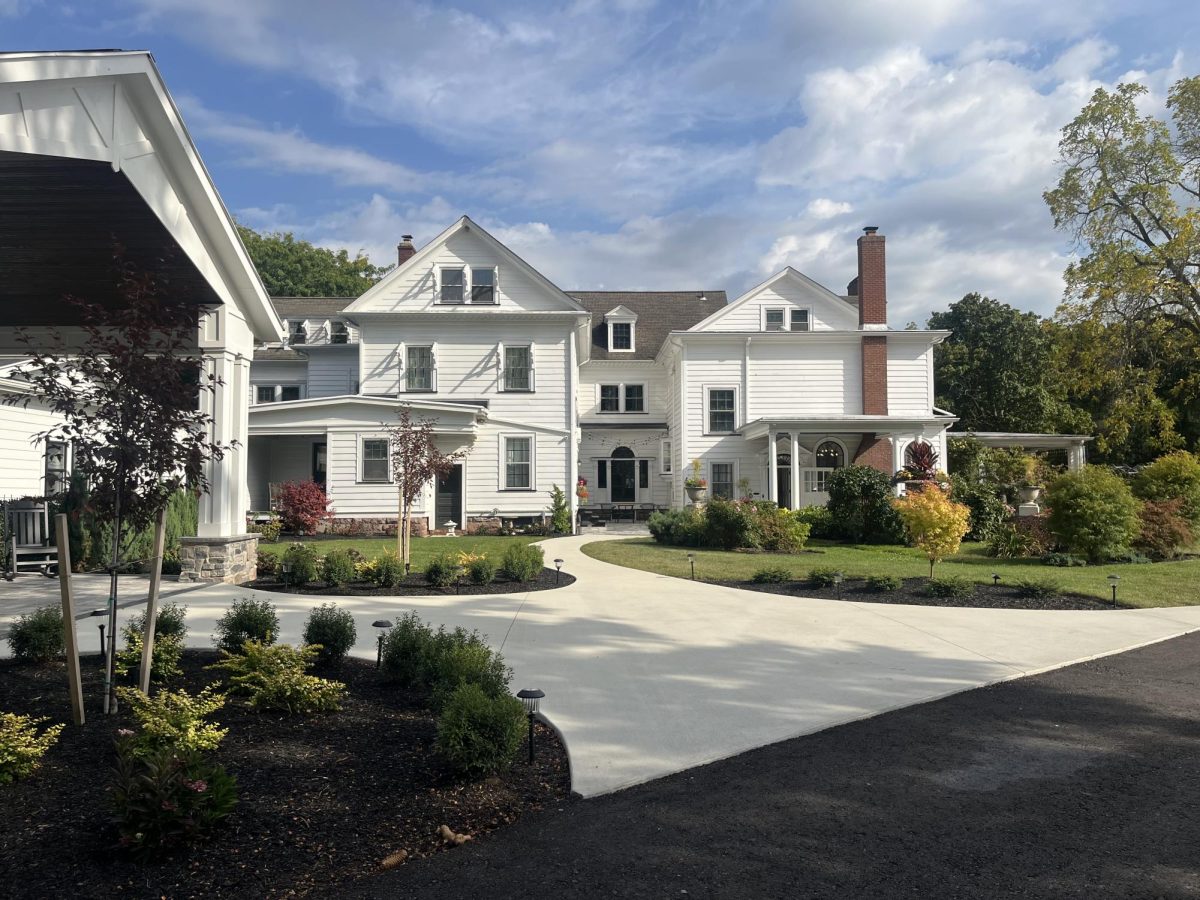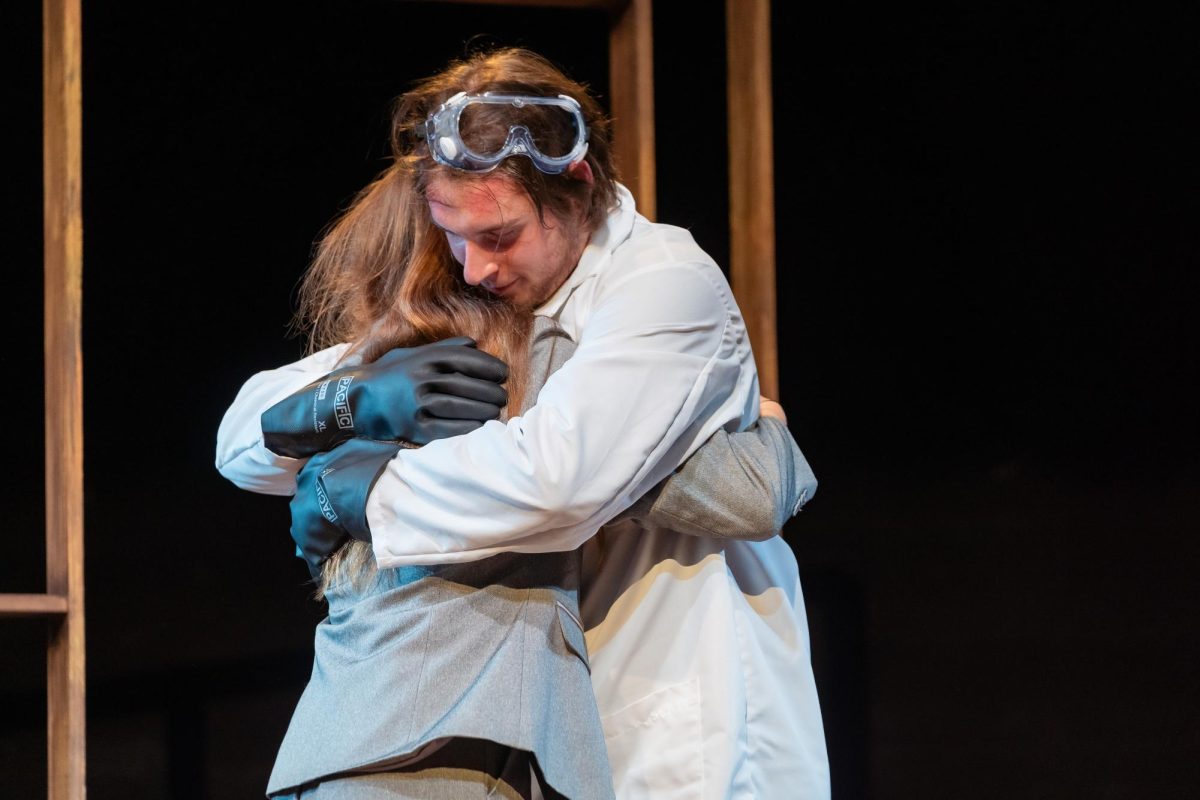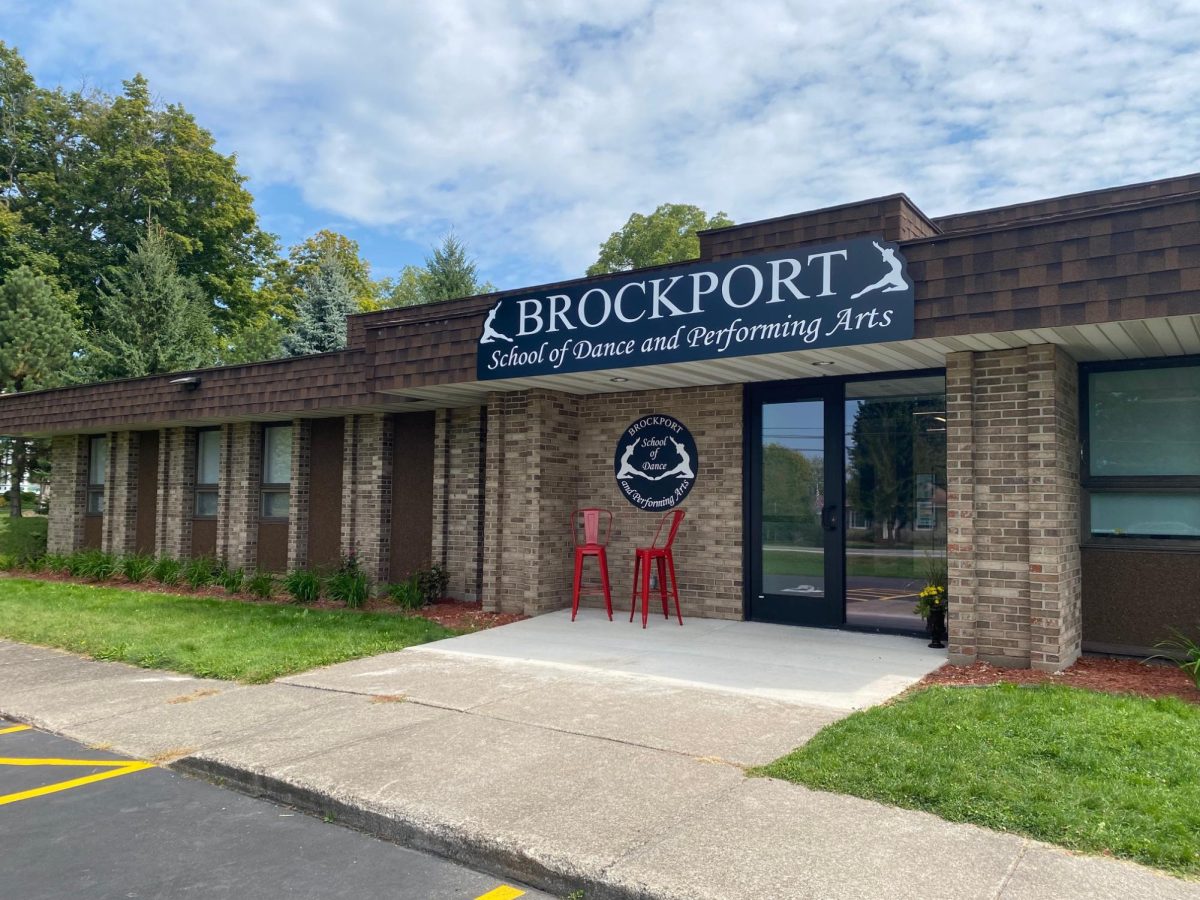For anyone who’s been to SUNY Brockport’s Black Box Theatre, the experience is a drama lover’s dream. This theatre is smaller than SUNY Brockport’s Mainstage, giving its productions a more intimate feel. The seating surrounds the stage on three sides, allowing audience members to feel like they are in the story. The sound echoes throughout the space as each line is delivered with power and purpose.
Theatre-goers recently had the chance to immerse themselves in the surroundings during the Festival of Ten XIV. The Festival of Ten is a biennial production produced by SUNY Brockport’s Department of Theatre and Music Studies. Performances were held on the weekends of October 3 through 6 and October 17 through 20. This year’s production was not only the festival’s fourteenth installment, but the first theatre production of the 2024-2025 academic year.
“It is an opportunity to be seen”
For Brockport freshman and Festival of Ten XIV actor Jamie Hoffman, the series of plays tested their acting range.
“It is an opportunity to be seen, in a sense. It’s an opportunity to really show what you can do in a variety of ways,” Hoffman said. “You get to experience so many types of shows that you would have never experienced before.”
From the abbreviated lengths of the plays to the engaging set design, the Festival of Ten XIV brought audience members a special viewing experience. This festival was also special for its performers, as it challenged them and their abilities. For Hoffman, being in this production was different from any production they had previously been in, because they had to adapt to the Black Box Theatre.
“It was very interesting to try to figure out ways to be seen by everyone and also have my voice loud enough to be heard by everyone, because we weren’t wearing any microphones,” Hoffman said. “You have to practically strain yourself to be able to get it loud enough.”
The Festival of Ten XIV was split into two acts with five plays each. No two plays were alike – they each had different genres and themes. Although this may sound chaotic and incohesive, the variety of plays came together to form a piece that reflected the intricacies and everyday moments that create the human experience.
“The whole production, the transitions from one show to another, were really very, very well done,” “The Wakers” playwright Guy Newsham said. “It’s always very enjoyable to go from drama to comedy to science fiction. It’s a lot of fun.”
Here is a breakdown of the Festival of Ten XIV:
Act One:
Act One’s first play was “Monster Love.” Written by D.L. Siegel, this piece showcased a strained, yet loving, father-daughter relationship. Specifically, it depicted the relationship Dr. Frankenstein and his daughter have and their stances on the scientist trying to bring his dead wife back to life so she can attend her daughter’s wedding. It was a comical and heartfelt way to open the show.
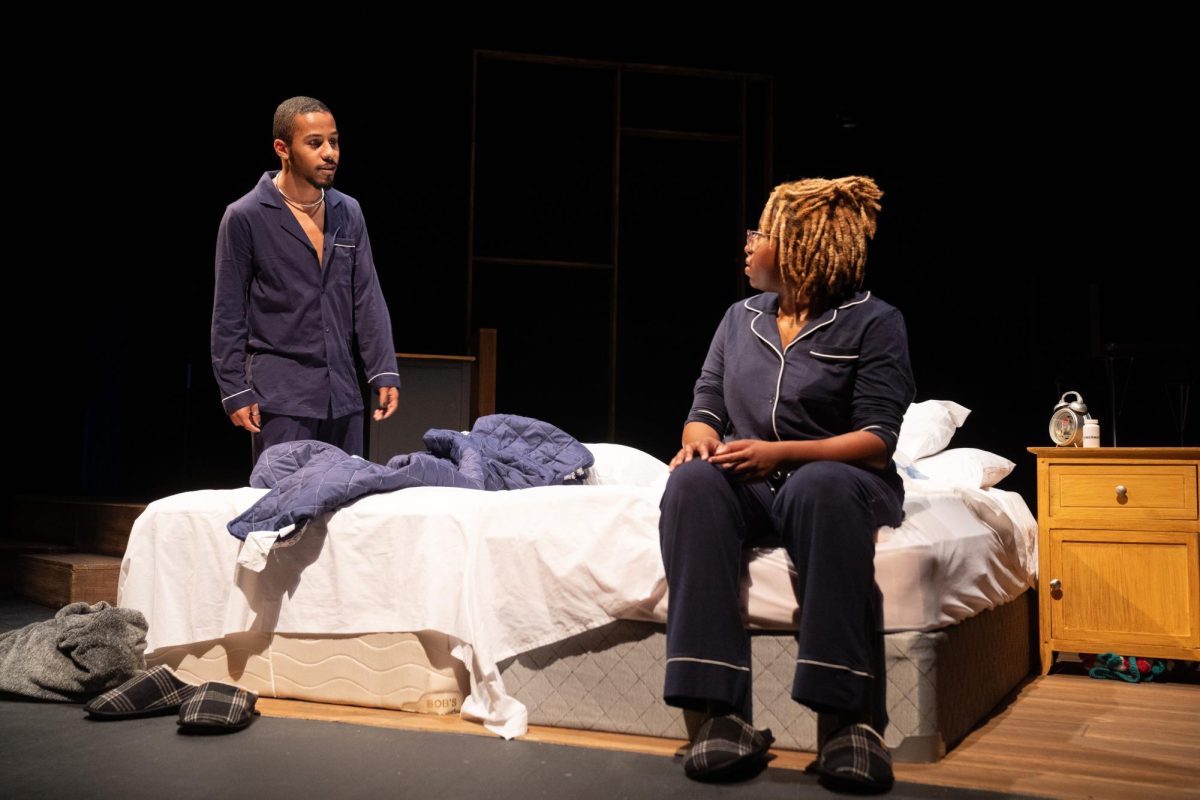
Act One’s second play was Newsham’s “The Wakers.” It focused on how a couple responded to a government-mandated hibernation period, which was created to conserve resources. While the man followed the mandate and slept for months, the woman faked taking the hibernation pill because she did not want to miss out on months of her life. “The Wakers” forces audience members to consider times when they followed rules without questioning them. The dystopian romance makes audience members reflect on what is most important to them, and what they would miss most if they were forced to hibernate.
Newsham said he took inspiration from his own marriage to develop the drama and tension between the couple in the piece. This festival was the second time “The Wakers” has been performed.
“It’s always fun to see what the other creative people, like the director, the actors and the rest of the team come up with,” Newsham said. “It really makes me appreciate the performed play. The words on the page are only half of what you see.”
Act One’s third play was “A Nice, Quiet Neighborhood.” Written by Ellen Davis Sullivan, it displayed a disagreement between neighbors. Their disagreement about their varying lifestyles was a metaphor for the different reactions to the Black Lives Matter movement. “A Nice, Quiet Neighborhood” was hopeful and emphasized that change that can occur through open conversations.
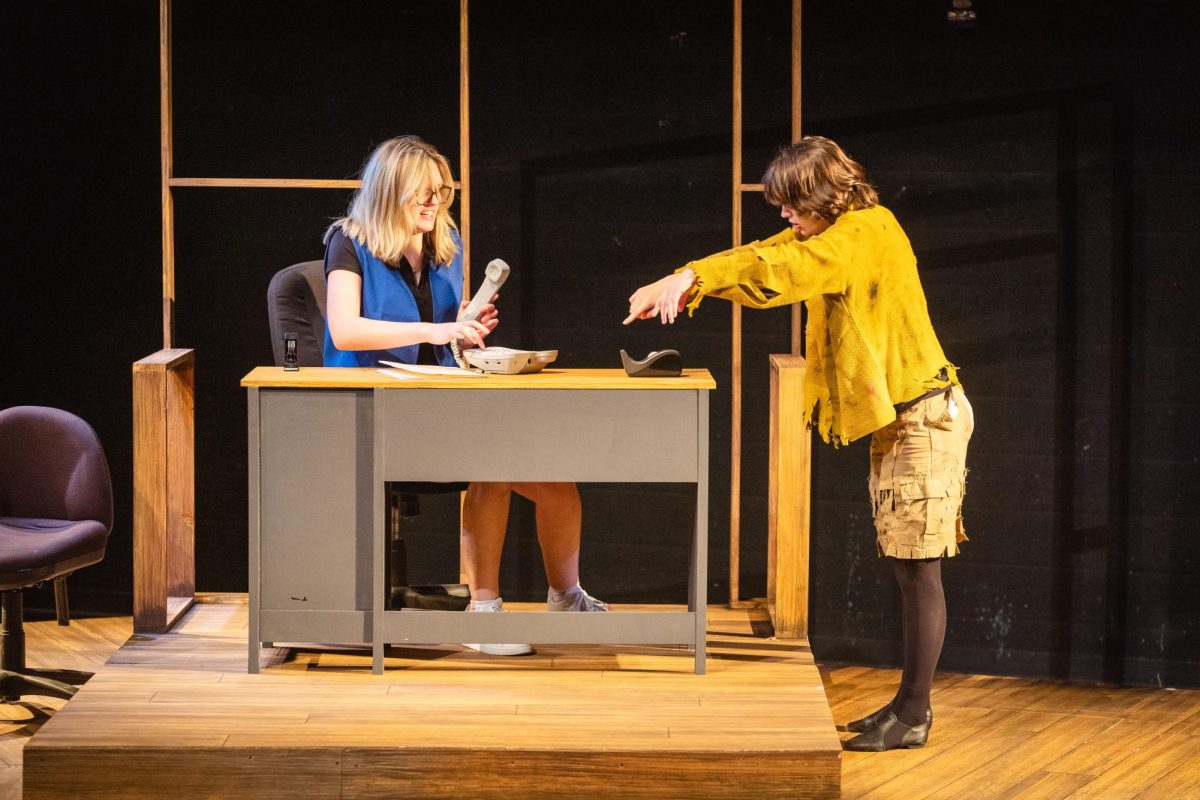
Act One’s fourth play was “But Soft.” It featured a conversion between two boarding school roommates and what roles they wanted to audition for in the school’s upcoming production of “Romeo and Juliet.” Vince Gatton’s play not only reminded the audience of “Dead Poets Society,” but forced audience members to consider the gender roles they have had to maintain and if they ever wished they could be freed from them.
Act One’s fifth and final play, “An Essential Play,” reminded audience members of their experiences during the Covid-19 pandemic. However, Rand Higbee’s play didn’t take place during the Covid-19 pandemic, but during a zombie outbreak. Filled with combat and contortion, “An Essential Play” delivered the action before intermission.
Act Two:
Act Two’s first play was Colette Murphy’s “Two Bean Burritos & Awkward Silences.” While they enjoyed late-night Taco Bell, two friends discussed their drastically different comfort zones, favorite things and unresolved feelings for each other. This play masterfully encapsulated the tension present in complex relationships.
Act Two’s second play was “Commandments.” It forced audience members to consider what qualifies someone as a religious person. In Alexa Schoffel’s play, a couple argues about their attitudes on going to church. A man surprises his girlfriend by telling her she will be meeting his parents for the first time at church, instead of over dinner like he told her, because it is what his parents insisted. He then quizzes his hesitant and angered girlfriend on the Ten Commandments to show her that she is not completely different from churchgoers, addressing her anxieties about going to a place that she doesn’t feel welcomed. “Commandments” makes audience members confront their views on religion and morality.
Act Two’s third play was “Amsterdam Café.” In “Amsterdam Café,” a woman tried what she thought was an edible for the first time when on vacation with her friend. Mara Dresner’s play was quirky, full of life and a humorous, a real-world example of the placebo effect. Hoffman experimented with a variety of acting choices in rehearsal to create their “high” character.
“I originally went into everything thinking, ‘Oh, I’m gonna be super happy and bubbly,’” Hoffman said. “And then I went to a stereotypical white girl voice, and I was like, ‘Yeah, that fits.’”
Act Two’s fourth play was Meloria Dockery’s “The Soldier.” It conveyed how conflict can bring people together. In the play, a soldier and a farmer bonded over their anger towards the war that was happening around them and their desire to be reunited with their families. Dockery wrote this play after she visited a training ground in England where Ukrainian boys were learning how to fight.
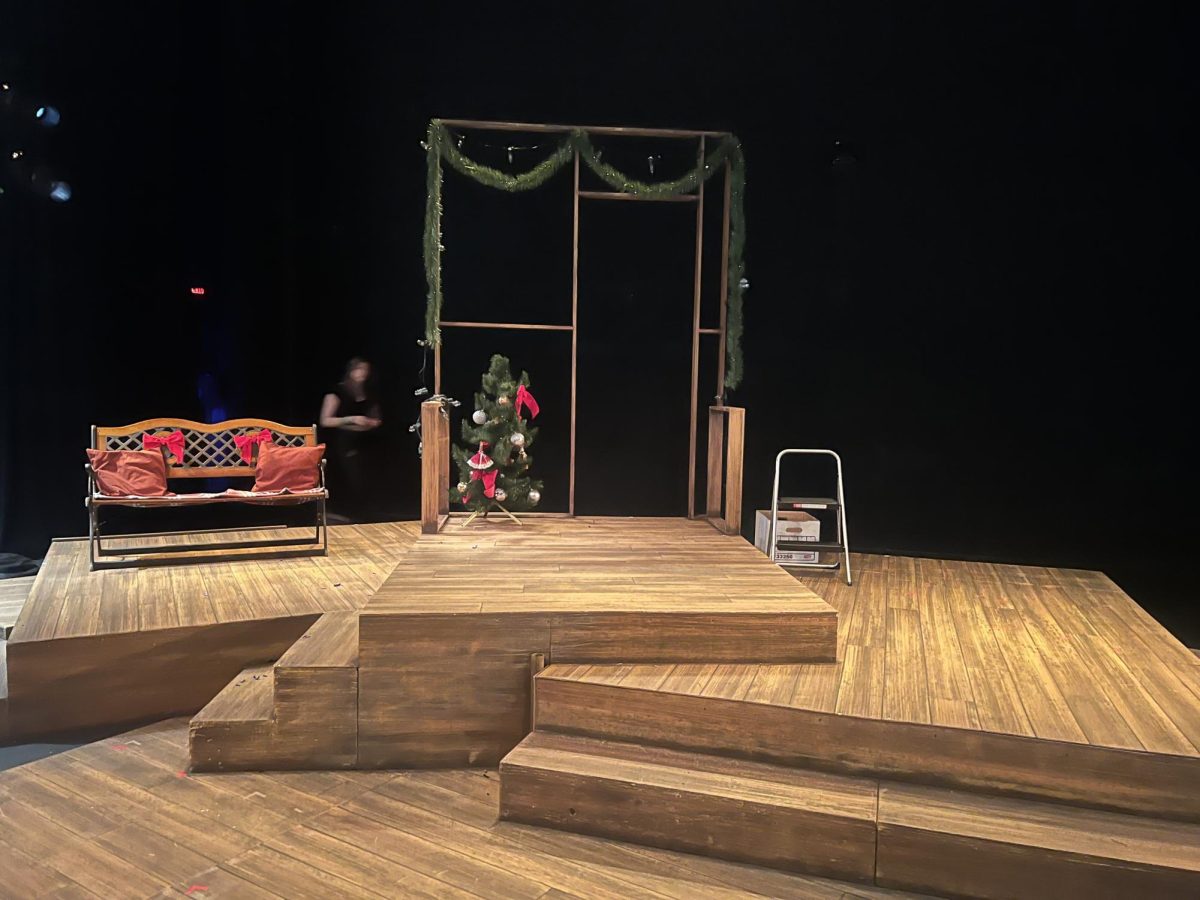
“I was walking up the road and I thought, ‘What if this was real? What if I had to get up this road for a reason? Why would I be walking on this road? Well, maybe I have to milk the cows.’ That’s how the whole thing started,” Dockery said.
Act Two’s fifth and final play was “Where the Love Light Gleams,” by David Valdez. As a married couple decorated their house for Christmas, they grieved the loss of their adoptive child, as his biological mother regained custody of him. One of the women, portrayed by Hoffman, took the loss harder than the other.
“It was probably the most intense thing I’ve done in my theatre career.” Hoffman said.
“A good job overall”
After attending the Festival of Ten, audience member James Cordero said he would come back to a future Brockport production. He was impressed by the dynamic concept and quick pacing of the festival.
“There’s a whole range of different things that people can relate to,” Cordero said. “I thought it was a good job overall.”
While each play differed in genre and subject matter, the Festival of Ten XIV was a cohesive celebration of theatre.
“I love the enthusiasm,” said Dockery. “To give all these actors a chance, you know, to burgeon in their careers, I think it’s marvelous idea.”
The curtain didn’t close on the drama lover’s dream when the festival ended, as this production was the first of four theatre productions in the 2024-2025 Fine Arts Series. The next three productions are this semester’s “Ordinary Days” and next semester’s “A Few Good Men” and “POTUS.”

